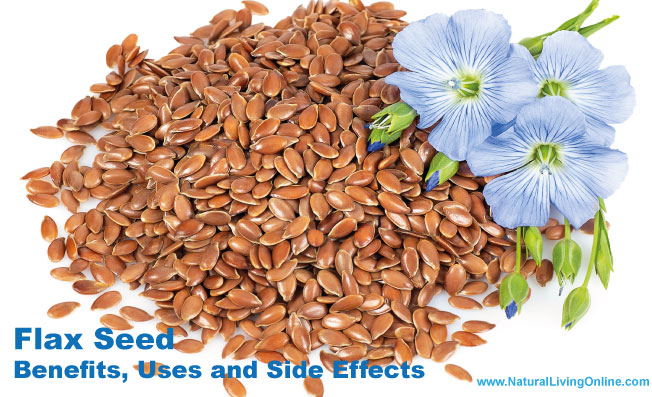Garlic (Allium sativum) is a species of the onion genus and is related to onions, shallots, leeks, chives and other members of the allium family. It is a pungent herb that has been used for centuries in both cooking and medicine. Garlic has long been valued for its medicinal properties and is often used to treat a variety of ailments.
Garlic contains a wide range of active compounds which have been demonstrated to possess medicinal properties. These include allicin, diallyl disulfide, and other sulfur-containing compounds as well as flavonoids, antioxidants, and vitamins. Many of these compounds have been shown to possess anti-bacterial, anti-fungal, anti-inflammatory and other beneficial properties which may explain the wide range of health benefits attributed to garlic.
Studies suggest that eating garlic can help reduce cholesterol levels, lower blood pressure and improve circulation. Garlic may also help to prevent certain types of cancer due to its high levels of antioxidants and anti-inflammatory compounds. Additionally, garlic has been used as a natural remedy for colds, flu and other respiratory illnesses due to its antiviral properties. It is important to note however that more research is needed to determine the precise health benefits of garlic. In conclusion, garlic is a flavorful and nutritious addition to any diet that may also provide medicinal benefits for certain individuals. It is important to consult with your doctor before adding garlic to your diet in order to ensure it will not interact with any other medications you are taking.
History and Uses of Garlic
Garlic has been used around the world in various cultures for centuries. It is believed to have originated in Central Asia and was later brought to Europe by traders. In ancient Egypt, garlic was highly prized and was often used as a form of payment or currency. Ancient Greeks also used garlic both medicinally and as part of religious ceremonies. The Ancient Romans believed garlic had the power to ward off evil spirits. In Chinese medicine, garlic was used to treat a variety of ailments ranging from digestive disorders to infective diseases and is still used today as an herbal remedy for many ailments.
Garlic can be eaten raw or cooked in a variety of dishes ranging from soups and stews to stir-fries and salads. Additionally, garlic can also be consumed in pill or capsule form as a dietary supplement.
The medicinal properties attributed to garlic have been studied extensively over the past few decades which has revealed a wealth of potential health benefits. Garlic has been shown to reduce cholesterol levels and blood pressure, improve circulation and boost the immune system. It may also help to prevent certain types of cancer due to its anti-oxidant and anti-inflammatory properties. Additionally, garlic has been shown to be an effective natural remedy for colds, flu, and other respiratory illnesses due to its antiviral properties. More research is needed to determine the precise health benefits of garlic, but it is clear that this pungent herb offers numerous potential health benefits.
Nutritional Value of Garlic
Garlic is an excellent source of a variety of nutrients including Vitamin B6, Vitamin C and Manganese. It also contains significant amounts of dietary fiber, protein and carbohydrates. Additionally, garlic contains allicin which has antibacterial properties as well as diallyl disulfide which is known for its antioxidant properties.
Garlic is a good source of minerals such as iron, zinc, calcium and potassium. It also contains trace amounts of other minerals like selenium, chromium and copper.
Health Benefits
Improves Heart and Cardiovascular Health
Garlic is known for its many medicinal benefits, one of which is its ability to promote heart health. Studies have shown that consuming garlic on a regular basis can help reduce cholesterol levels and improve blood flow throughout the body. This can help protect against hypertension, stroke, and other cardiovascular diseases. Furthermore, garlic has been found to reduce inflammation within the arteries, which can lead to a healthier heart and circulatory system. Additionally, garlic contains allicin, an active compound that helps lower levels of bad cholesterol (LDL) while raising good cholesterol (HDL). All in all, consuming garlic is an easy way to support healthy heart function and protect against cardiovascular diseases.
Improves Immune System Functionality
Garlic is a powerful natural remedy that has been used for centuries to improve the immune system’s functionality. Garlic’s antiviral, antibacterial, antifungal and anti-inflammatory properties make it an excellent choice for boosting immunity and improving overall health. Studies have shown that regular consumption of garlic can help reduce cold symptoms and fight off infections. Garlic also has a compound called allicin, which can help protect against infection-causing bacteria and viruses. Allicin is released when garlic is crushed or chopped and it has strong antimicrobial properties that can help to fight off pathogens in the body. Additionally, research shows that garlic can increase the number of beneficial immune cells in the body, helping to strengthen the immune system and protect against harmful infections. For improved health and immunity, it is recommended to consume a clove of garlic daily. Garlic can be enjoyed raw or cooked in various dishes as a tasty addition to meals.
Reduces Risk of Certain Types of Cancer
Garlic is widely known for its health-promoting properties and has been used in traditional medicine since ancient times. Studies have shown that garlic may reduce the risk of certain types of cancer, such as stomach and colorectal cancer. The active compounds in garlic are thought to be responsible for these beneficial effects on health. A major compound found in garlic is allicin, which has powerful antioxidant and anti-inflammatory properties. Allicin also helps inhibit cell growth and may have antitumor activities. Other compounds in garlic, such as sulfides, are known to be effective in fighting cancer cells. Studies have shown that regular consumption of garlic can reduce the risk of certain types of cancer by up to half. Therefore, adding garlic to your diet could be a simple and effective way to reduce your risk of cancer.
Improves Digestive Health
Garlic is a potent herb that has been used for its medicinal benefits since ancient times. It can help improve the digestive system by promoting good bacteria growth and stimulating the production of gastric juices, which aid in digestion. Garlic also helps reduce gas and bloating, as well as reducing constipation. Additionally, garlic contains compounds called allicin that may help reduce the risk of certain gastrointestinal conditions, such as irritable bowel syndrome. For these reasons, garlic can be an excellent addition to any diet to improve overall digestive health. It is important to note, however, that too much garlic can cause gastric distress and should therefore be consumed in moderation. Eating fresh garlic or taking a garlic supplement can be beneficial for digestive health. If consuming raw garlic, it is best to crush or mince the cloves before eating them to release the full range of beneficial compounds.
Treatment for Skin Conditions, Hair Loss, and Acne
Garlic has been used topically to treat a variety of skin conditions including eczema and psoriasis. It can also stimulate hair growth and reduce acne breakouts.
Garlic contains allicin, which is thought to be one of the main active ingredients with anti-inflammatory benefits. When applied topically, it can help to reduce inflammation and redness associated with skin conditions. It can also help to promote healthy skin cell regeneration, which is essential for maintaining a youthful complexion. Furthermore, allicin has been found to have antiseptic and disinfectant properties, which make it effective in clearing up acne breakouts.
Garlic also contains vitamins and minerals that are beneficial for the skin and hair. For example, it is a good source of vitamin C which helps to boost collagen production and keep skin firm. Additionally, garlic also contains sulfur compounds which can help to reduce scalp dryness and flaking associated with hair loss.
Helps People with Diabetes
Garlic has been linked to diabetes prevention, as well as aiding in managing levels of blood sugar. Studies have shown that garlic consumption can help reduce fasting glucose and HbA1c (a measure of average blood sugar over the last three months). Research also indicates that individuals who regularly consume garlic are at lower risk for developing type 2 diabetes. The active components found in garlic, called allicin and diallyl sulfides, could be the secret behind this impressive result. Allicin and diallyl sulfide are known to have anti-inflammatory properties that can help reduce inflammation associated with diabetes. In addition, they may also increase insulin sensitivity within the body, helping manage blood sugar levels.
Side Effects
Although garlic is generally considered safe to consume, it is possible to experience adverse effects from consuming too much of the herb. It can irritate the stomach lining and cause indigestion if consumed in large amounts. Additionally, some individuals may experience skin irritation or rash if they come into contact with raw garlic that has been cut or crushed. Consuming large quantities of garlic may also lead to an increase in heart rate and blood pressure so it is important to consult with your doctor before adding garlic to your diet in order to ensure it will not interact with any other medications you are taking.
Conclusion
In conclusion, garlic is a nutrient-rich herb that can provide a variety of health benefits. It has been found to improve heart and cardiovascular health, boost immunity, reduce the risk of certain types of cancer, and even help with skin conditions, hair loss and acne. Additionally, it may be beneficial for people with diabetes as it can help regulate blood glucose levels and improve insulin sensitivity. However, it is important to keep in mind that consuming too much garlic can lead to adverse effects such as indigestion and an increase in heart rate and blood pressure. As such, it is important to consult with your doctor before adding garlic to your diet.
Overall, garlic can be a beneficial addition to a healthy diet and may provide numerous health benefits. For those looking to improve their overall health and wellbeing, adding garlic to your meals is a great place to start. With its unique flavor and many potential health benefits, it is no wonder that garlic has been used as a natural remedy for centuries. Try incorporating more garlic into your recipes today and start reaping the rewards of this amazing herb!
References:
- Potential Health Benefit of Garlic Based on Human Intervention Studies: A Brief Overview
- Garlic: a review of potential therapeutic effects
- Revealing the Therapeutic Uses of Garlic (Allium sativum) and Its Potential for Drug Discovery
- Immunomodulation and Anti-Inflammatory Effects of Garlic Compounds
This website does not provide medical advice.
All information provided on this website, and on associated social media networks, including but not limited to texts, images, and numbers are for general information purpose only. It is not intended as medical advice and it does not include all possible precautions, side effects, or interactions that may occur. Neither NaturalLivingOnline.com nor its author/founder take responsibility for how you use this information. Statements contained on NaturalLivingOnline.com have not been evaluated by the FDA. You should conduct thorough research via multiple sources and consult your physician or qualified doctor before using any essential oil or herbal remedy. Information on NaturalLivingOnline.com must not be relied upon for medical, legal, financial or other decisions.













